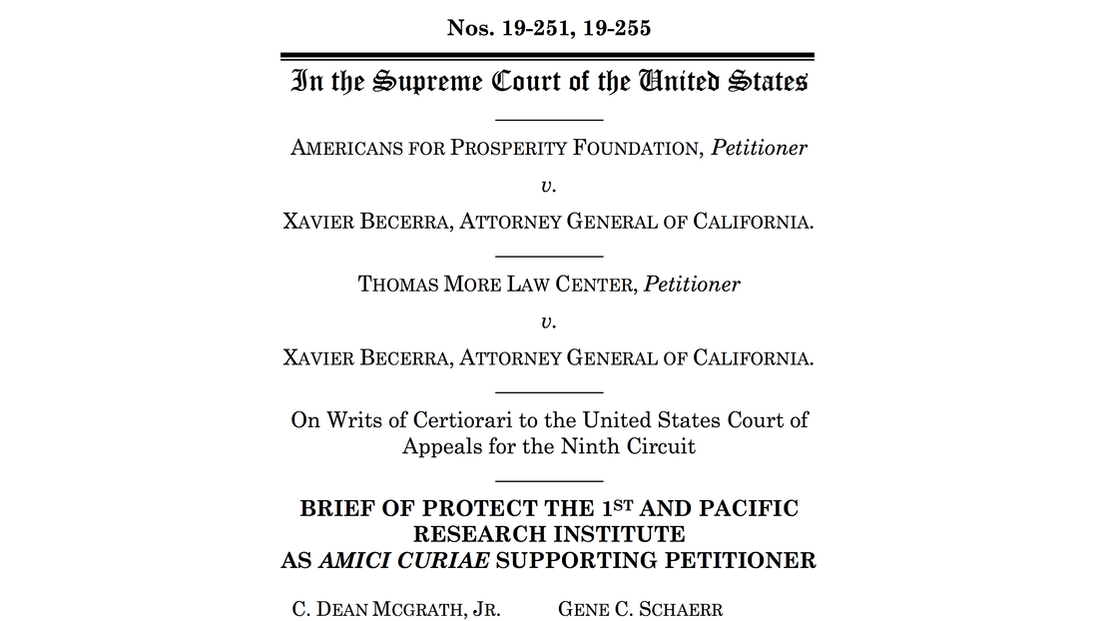|
The Supreme Court heard oral argument today in Americans for Prosperity v. Rodriquez. The case asks whether California can, consistent with the First Amendment, require all charities doing business in the state to disclose to the state Attorney General a list of their donors. Protect The First (PT1st), together with the Pacific Research Institute, filed a brief earlier this year that argued that the California requirement violates the First Amendment by chilling the speech of would-be donors.
The justices’ questions suggest the Supreme Court understands and agrees with PT1st’s brief. Justices Sotomayor and Kagan both seemed to agree that California violated—at the very least—the First Amendment rights of the petitioners challenging the law. Sotomayor, for example, recognized that it was “without dispute … that a disclosure of their donors would harm them.” Sotomayor then echoed one of the central themes of PT1st’s brief: Even though California promises to keep the disclosed information private, there is a “human fear” that such information, which is uploaded to an online database, will be hacked. Justice Kagan, for her part, emphasized the district court’s findings that California had (1) a history of inadvertent disclosure and (2) that petitioner’s donors would face threats and harassment if their affiliations were disclosed. Because such findings are reviewed for clear error, a very deferential standard, Justice Kagan had no choice but to ask, “How can you win on the as-applied challenge?” In other words, doesn’t the history and facts of this case render it constitutionally suspect, at least in respect to the petitioners? It is hard to imagine a question that serves as a better tell for how a justice is approaching a case. Other justices seemed likely to go even further and find that the California disclosure regime is facially unconstitutional, meaning that it violates the First Amendment in any context:
It is never wise to bet on how the Court will decide a case. But the justices’ questions suggest the Court will likely find the California scheme unconstitutional, at least as applied to the petitioners, because of the risk of threats and harassment that they proved at trial. That itself would be a win. The questions of multiple justices, however, suggest that the Court might go further and provide relief to all charities by finding the law unconstitutional on its face. PT1st remains hopeful the Court will provide an opinion that either expressly or implicitly invalidates California’s scheme. We expect an opinion in late June, and will report back then. Comments are closed.
|
Archives
June 2024
Categories
All
|
ABOUT |
ISSUES |
TAKE ACTION |



 RSS Feed
RSS Feed